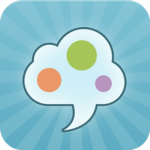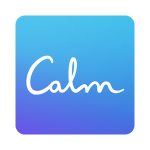
Coronavirus (COVID-19)
The coronavirus (COVID-19) outbreak may cause you to feel anxious, stressed, worried, sad, helpless, overwhelmed, confused or angry. It’s important to remember it is OK to feel this way and that everyone reacts differently to different events. Find out more about the simple steps you can take to help prevent catching COVID-19 and spreading to others, also find out more about what you can do if you are feeling anxious and worried, and how you can support others in your community.
What can I do to protect myself against coronavirus?
Be hygienic!
Make sure to wash your hands regularly – especially after going to the toilet, after coughing or sneezing, and before eating food. It’s also good practice to make sure you don’t come too close in contact with anyone who may be carrying an infectious disease, like a cold or flu.
What should you do if you think you have the virus?
If you think you may have caught the virus or if you get a fever, cough or are feeling short of breath then you should:
- Check your symptoms on the NHS Wales Coronavirus Symptom Checker
- Stay indoors and avoid contact with other people as you would with the flu
- Call NHS Direct Wales on 111 or 0845 46 47 (they are currently very busy so be patient)
If you’re feeling slightly overwhelmed or anxious about the coronavirus – what can you do?
- Follow one tried and tested news information source, limit to one or two checks per day, not before bed such as (NHS Wales, Welsh Government, the BBC or the World Health Organisation (WHO)). It’s really NOT about overwhelming yourself with all the information as that can make you feel worse. There are sites offering ‘daily distraction’.
- Keep in contact with friends and loved ones, and stay connected in new ways and at the same time, get proper rest.
- Take time out to re-centre yourself can help maintain your mental health and overall well-being. Pay attention to the sky and nature, pay attention to sensations in your body, like the touch of your foot against the ground. When facing so much that is unknown, these simple, grounding acts can help you tap into and strengthen your inner resources. There are lots of Apps and meditations on YouTube to help you. We’ll have a list of great apps and links at the bottom of this article.
- STOP, Take a slow deep breath. Practicing breathing exercises helps to calm us.
- You can create your own Mind Plan on the NHS’s Every Mind Matters pages. They ask 5 simple questions and will suggest top tips and advice for you tailored on your answers.
- If you start to feel overwhelmed, shift your attention to something else, like listening to music, if you have a hobby, or DIY project, engage in those.
- Exercise is an important driver of endorphins.
- Meddwl.org has some Welsh language advice to take care of your mental health during the Coronavirus case.
- Build structure into your new routine, create a list of “free-time activities,” so you have options to choose from during downtime. These can include basics like catching up on podcasts. Be sure to also add on some of the things you’ve always said you would do, ‘if you had the time’.
- Find a support system. Allow people to talk and air their fears, listen well, hear their distress then share these tips with them.
Below is a video that Emma from Blue Mind Wellbeing has created on 7 really important strategies to help you take control of your wellbeing during the covid-19 lockdown. Try Emma’s advice of taking up 3 strategies a day. Let us know how you get on. Stay home, stay safe!

For more information on how to deal with self-isolation and on sticking to a normal routine click here.
Useful apps:

Mind Shift Mind Shift is a mental health apps designed specifically for teens and young adults with anxiety. Rather than trying to avoid anxious feelings, Mind Shift stresses the importance of changing how you think about anxiety. It can encourage you to take charge of your life, ride out intense emotions, and face challenging situations.

Self Help for Anxiety Management SAM might be perfect for you if you’re interested in self-help, but meditation isn’t your thing. Users are prompted to build their own 24-hour anxiety toolkit that allows you to track anxious thoughts and behaviour over time, and learn 25 different self-help techniques. You can also use SAM’s “Social Cloud” feature to confidentially connect with other users in an online community for additional support.

Happify, Need a happy fix? With its psychologist-approved mood-training program, the Happify app is your fast-track to a good mood. Try various engaging games, activity suggestions, gratitude prompts and more to train your brain as if it were a muscle, to overcome negative thoughts.

The Headspace app makes meditation simple. Learn the skills of mindfulness and meditation by using this app for just a few minutes per day. You gain access to hundreds of meditations on everything from stress and anxiety to sleep and focus. The app also has a handy “get some headspace” reminder to encourage you to keep practicing each day.

Calm provides people experiencing stress and anxiety with guided meditations, sleep stories, breathing programs, and relaxing music. This app is truly universal; whether you’ve never tried meditation before or regularly practice, you’ll find the perfect program for you.

Smiling mind is a way to practice daily meditation and mindfulness exercises from any device. Smiling Mind is a unique tool developed by psychologists and educators to help bring balance to your life. This is really helpful during times of stress and is a fun and unique way to help you put a smile on your mind.
Other NHS approved apps can be discovered here:
https://www.nhs.uk/apps-library/category/mental-health/
There are many other apps you could try which could be helpful but these are some suggestions to try or you may find your own that you like better.
To understand the Coronavirus a little better, watch the below video.
Helplines available:
- Trained to help children and young people in Wales, and they can help you get the help that you need between 8am and midnight, every single day
- Text 84001 – FREE
- Freephone 080880 23456 (and the number doesn’t show up on your bill either)
- Online chat to chat to one of their expert advisors
- Provides free, 24/7 crisis support across the UK if you are experiencing a mental health crisis
- If you need urgent help text YM to 85258
- All texts are answered by trained volunteers, with support from experienced clinical supervisors
- Texts are free from EE, O2, Vodafone, 3, Virgin Mobile, BT Mobile, GiffGaff, Tesco Mobile and Telecom Plus.
- Phone 0800 58 58 58 (daily, 5pm to midnight)
- Phone 116 123 (24 hours, 7 days a week)
- Phone 0800 1111
- Phone 03444 775 774 (Monday to Friday, 9:30am – 5:30pm)






GOT SOMETHING TO SAY?
You must be logged in to post comments on this website
Login Here Register